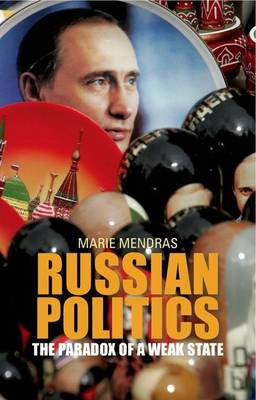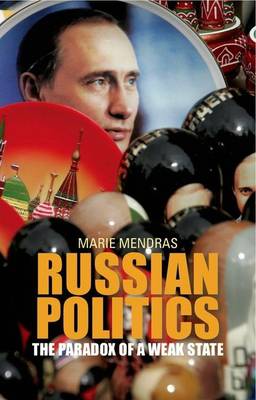
- Retrait gratuit dans votre magasin Club
- 7.000.000 titres dans notre catalogue
- Payer en toute sécurité
- Toujours un magasin près de chez vous
- Retrait gratuit dans votre magasin Club
- 7.000.0000 titres dans notre catalogue
- Payer en toute sécurité
- Toujours un magasin près de chez vous
Description
What has become of the Russian state twenty years after the collapse of Communism? Why have the rulers and the ruled turned away from democratic institutions and the rule of law? What explains the Putin regime's often uncooperative policies towards Europe and its difficult relations with the rest of the world? These are among the key issues discussed in this essential book on contemporary Russia by Marie Mendras, France s leading scholar on the subject. Mendras provides an original and incisive analysis of Russia's political system since Gorbachev's perestroika. Contrary to conventional thinking, she contends that today the Russian state is weak and ineffective. Vladimir Putin has dismantled and under- mined most public institutions, and has consolidated a patronage system of rule. The Medvedev presidency was but one chapter in the story, as Putin s re-election exemplifies. Political and economic power remains concentrated in the hands of a few groups and individuals, and the elites remain loyal to the leadership in order to hold on to their positions and prosper. Those at the helm of the state are unaccountable to the society they govern. Up until the economic crisis of 2008, ordinary Russians largely turned a blind eye to these authoritarian methods because living standards had markedly improved. The economic slowdown, rising corruption and unfair elections have put the leadership under pressure, and have caused unprecedented public protest.
Spécifications
Parties prenantes
- Auteur(s) :
- Editeur:
Contenu
- Nombre de pages :
- 288
- Langue:
- Anglais
Caractéristiques
- EAN:
- 9780199395064
- Date de parution :
- 30-11-14
- Format:
- Livre broché
- Format numérique:
- Trade paperback (VS)
- Dimensions :
- 140 mm x 216 mm
- Poids :
- 462 g

Les avis
Nous publions uniquement les avis qui respectent les conditions requises. Consultez nos conditions pour les avis.






